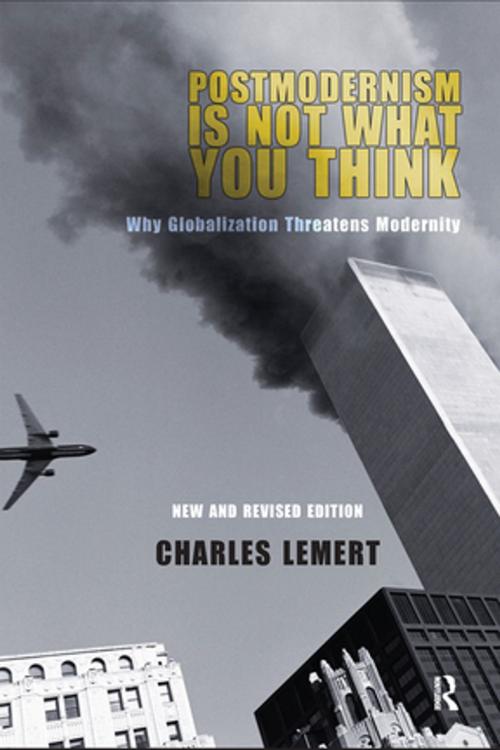Postmodernism is Not What You Think
Nonfiction, Social & Cultural Studies, Social Science, Sociology| Author: | Charles C. Lemert | ISBN: | 9781317253679 |
| Publisher: | Taylor and Francis | Publication: | December 3, 2015 |
| Imprint: | Routledge | Language: | English |
| Author: | Charles C. Lemert |
| ISBN: | 9781317253679 |
| Publisher: | Taylor and Francis |
| Publication: | December 3, 2015 |
| Imprint: | Routledge |
| Language: | English |
'Charles Lemert is one of the most thoughtful and interesting of sociology's postmodernists. He recurrently finds new angles of vision and is especially helpful for overcoming the pernicious opposition of 'micro' and 'macro' perspectives.' -Craig Calhoun, New York University (on the first edition) Highly readable, the second edition of Postmodernism Is Not What You Think responds to the widespread claim that postmodernism is over. It explains the historical connections between the postmodern and globalization. Those who wish to kill the term postmodernism still must face the facts that the former nationalistic world-system has collapsed and is slowly being replaced by a more global set of structures. The book is completely revised and updated with an entirely new section on globalization. The media and popular culture, identity politics, the science wars, politics and cultural studies, structuralism and poststructuralism, and the new sociologies are also put in perspective as signs of the new social formations dawning at the end of the modern age. Lemert shows that the postmodern is less a theory than a condition of social life brought about by the trouble modernity has gotten itself into.
'Charles Lemert is one of the most thoughtful and interesting of sociology's postmodernists. He recurrently finds new angles of vision and is especially helpful for overcoming the pernicious opposition of 'micro' and 'macro' perspectives.' -Craig Calhoun, New York University (on the first edition) Highly readable, the second edition of Postmodernism Is Not What You Think responds to the widespread claim that postmodernism is over. It explains the historical connections between the postmodern and globalization. Those who wish to kill the term postmodernism still must face the facts that the former nationalistic world-system has collapsed and is slowly being replaced by a more global set of structures. The book is completely revised and updated with an entirely new section on globalization. The media and popular culture, identity politics, the science wars, politics and cultural studies, structuralism and poststructuralism, and the new sociologies are also put in perspective as signs of the new social formations dawning at the end of the modern age. Lemert shows that the postmodern is less a theory than a condition of social life brought about by the trouble modernity has gotten itself into.















